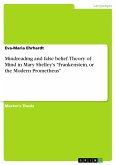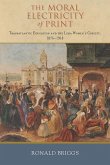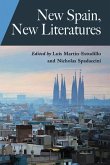Though the civil-rights abuses by the Pinochet dictatorship in Chile (1973-1990) were later recognized by reparations and truth commissions, the difficult emotions suffered by the victims and their families were often pushed into the background or out of the national conversation entirely. In response, novelists began writing memory of feelings experienced during the dictatorship into their books. In The Chilean Dictatorship Novel, Weldt-Basson examines fifteen novels and one testimony written on the topic of dictatorship to illustrate how these Chilean narratives center on affect and emotions. Each chapter focuses on a different emotion: feelings of loss because of father abandonment and spatial injustice caused by the neoliberal urbanization of Santiago; despair articulated through tragic romances and affective landscapes; left-wing nostalgia and melancholia communicated through allegory; feelings of abjection caused by torture and betrayal; and the creation of affect through violent events, aggressive child play, and sexual torture. Through a close look at the work of José Donoso, Ariel Dorfman, Diamela Eltit, Carlos Franz, and Nona Fernández, among others, Weldt-Basson effectively argues that by inspiring emotion and creating empathy within readers, the authors of these books instill a drive in the readers for ongoing social-justice advocacy, thereby transforming the process of reading into a platform for future action. Weldt-Basson's landmark study will serve as a basis for the future study of Latin American literature for decades to come.
Dieser Download kann aus rechtlichen Gründen nur mit Rechnungsadresse in A, D ausgeliefert werden.









